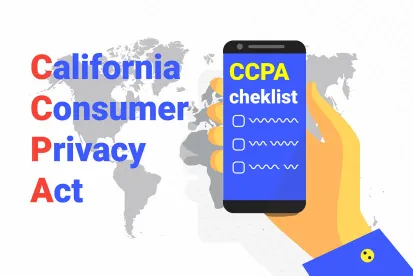1. What’s changing?
Under the current version of the California Consumer Privacy Act (“CCPA”), an employer’s obligations related to the personal information it collects from employees, applicants, and contractors residing in California (collectively, “Employment Information”) are relatively limited. Specifically, it needs to (1) provide those individuals a “notice at collection” that discloses the categories of personal information the employer collects about them and the purposes for which that information is used, and (2) safeguard those individuals’ personal information against unauthorized access or acquisition.
Come January 1, 2023, however, those obligations will dramatically expand when California’s new comprehensive privacy law, the California Privacy Rights Act (“CPRA”), which amends the CCPA, takes effect.
2. How will Employment Information be treated after January 1, 2023?
Subject to any regulatory updates, Employment Information will be treated like commercial consumer information.
3. What are we required to do by January 1, 2023?
With respect to Employment Information, the core requirements of the CCPA will be as follows:
-
At or before the collection of Employment Information, provide employees, applicants, and contractors a notice at collection, disclosing the categories of Employment Information you collect, the purposes for which that information is used, and certain record retention information.
-
Provide employees, applicants, and contractors a privacy policy that discloses, in addition to the notice at collection of information, the sources from which you collect Employment Information; the parties to which, and purposes for which, you disclose that information, and the rights granted to employees, applicants, and contractors by the CCPA (e.g., the right to access, correct, and/or delete personal information).
-
Develop policies, procedures, and forms to process requests to access, correct, and/or delete personal information, and to avoid discriminating against individuals for exercising those rights. This includes verifying the identities and authority of the persons making the requests, including third parties acting on their behalf.
-
Train applicable staff on processing the above requests.
-
-
Determine whether you must extend the right to limit the use and disclosure of sensitive Employment Information. This will depend on your uses and disclosures of “sensitive personal information”, which is a narrow subset of personal information.
-
Identify service providers and contractors with access to Employment Information and ensure your contracts with those parties are CCPA-compliant.
-
While not a per se requirement, conducting a data mapping exercise is often critical to compliance with the obligations listed above. Specifically, data mapping will help you identify, inter alia: what personal information you collect about employees, applicants, and contractors; the purposes for which you use that information; the sources of that information; the parties to which that information is disclosed, and for what purposes; and how long that information is retained.
4. What about the personal information of spouses and dependents?
Subject to any regulatory updates or clarifications, if the spouse or dependent is a California resident, their personal information would be subject to the same protections as Employment Information.
5. I keep seeing more “Do Not Sell My Personal Information” links on websites. Does that requirement apply here?
We expect most employers will not be “selling” or “sharing” Employment Information, as those terms are defined under the CCPA. However, it is prudent to analyze those definitions – in particular, for selling – to be sure.
6. January 1, 2023, is really soon. We don’t have time for all of that. Where should we focus our attention?!?
Full compliance with the CCPA will be a heavy lift for employers. Those looking to triage in advance of the effective date can prioritize these relatively manageable action items:
-
Develop a working draft of your privacy policy (which would include an updated notice at collection)
-
Ensure your service provider and contractor agreements are compliant
-
Implement a preliminary framework for processing requests to access, correct, and/or delete personal information
-
Start the data mapping process
7. Is there a chance the California legislature could change this?
The California legislature reconvenes in January 2023 and, yes, it is possible it could pass a law that would revert to the rules for Employment Information described in Question 1 above or eliminate the CCPA’s application to Employment Information entirely. By that point, however, the changes described above will already be in effect (although there is an enforcement grace period through July 1, 2023). Waiting and hoping the California legislature jumps in to save employers is a risky strategy.







 />i
/>i

